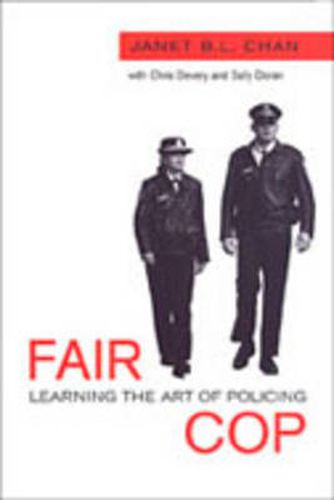Readings Newsletter
Become a Readings Member to make your shopping experience even easier.
Sign in or sign up for free!
You’re not far away from qualifying for FREE standard shipping within Australia
You’ve qualified for FREE standard shipping within Australia
The cart is loading…






Police forces everywhere have been undergoing major social and organizational changes. In this, one of the few longitudinal studies of police socialization, Janet Chan, Christopher Devery, and Sally Doran present the complexity of police socialization under these changing conditions. Following 150 new police recruits through two years of training and apprenticeship, the authors question the traditional model of socialization that assumes a degree of stability and homogeneity in the organizational culture. They suggest that recruits’ developmental paths can be much more varied and police culture is increasingly vulnerable to change.
Drawing on interviews, observations, and questionnaires, the authors depict the complex processes by which recruits adapt, redefine, cope with, and make sense of the positive and negative aspects of their training and apprenticeship. Bringing together rigorous quantitative analyses with rich ethnographic description, Fair Cop provides new empirical data and theoretical understanding about the reproduction and change of police culture.
$9.00 standard shipping within Australia
FREE standard shipping within Australia for orders over $100.00
Express & International shipping calculated at checkout
Police forces everywhere have been undergoing major social and organizational changes. In this, one of the few longitudinal studies of police socialization, Janet Chan, Christopher Devery, and Sally Doran present the complexity of police socialization under these changing conditions. Following 150 new police recruits through two years of training and apprenticeship, the authors question the traditional model of socialization that assumes a degree of stability and homogeneity in the organizational culture. They suggest that recruits’ developmental paths can be much more varied and police culture is increasingly vulnerable to change.
Drawing on interviews, observations, and questionnaires, the authors depict the complex processes by which recruits adapt, redefine, cope with, and make sense of the positive and negative aspects of their training and apprenticeship. Bringing together rigorous quantitative analyses with rich ethnographic description, Fair Cop provides new empirical data and theoretical understanding about the reproduction and change of police culture.